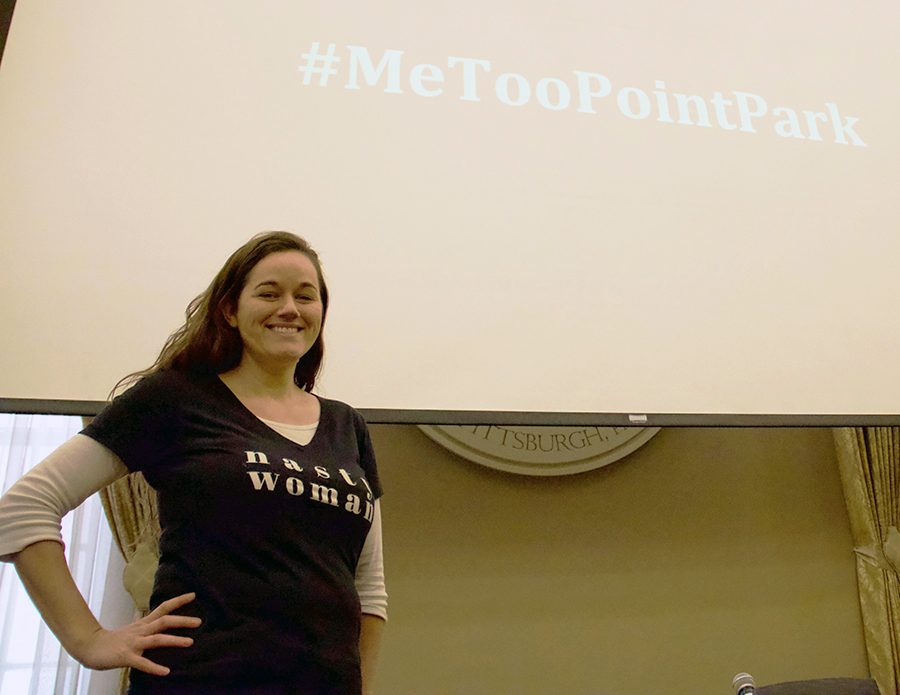#MeToo panel draws in packed Ballroom
March 13, 2018
A crowd of approximately 150 community members gathered in the Lawrence Hall Ballroom last Thursday for the #MeToo Panel.
The panel, sponsored by the Center of Media Innovation (CMI), was originally postponed due to inclement weather.
“It’s such an important discussion that’s taking place across the country and so many of our students are involved in the industries that have been affected in the headlines,” Director of the CMI Andrew Conte said. “We wanted to create an opportunity for our students to understand what has been going on and also learn some tools to handle these situations if they come up in their own lives.”
The event landed on International Women’s Day.
April Friges, assistant professor of photography and photography program coordinator, wanted to take part in the panel to inform students on how to handle situations right out of college.
After college, Friges moved to California to work as a photographer’s assistant at a commercial photography studio where she was sexually harassed by the photographer.
“If I would had known better, I probably would have approached the situation differently,” Friges said. “So I think that giving the students the opportunity now to fully project that it’s not if you’re in the situation, it’s when you’re going to be in the situation. That’s why I want to be here to let them know that there are ways around it.”
Friges tells her photography students that they have to be proactive and know the next move.
She explained that the assistant has to do everything the photographer says which automatically gives the photographer power.
“You are kind of at their mercy and just getting them to know that there’s self-respect here and there’s a line,” Friges said. “You need to know what in terms of your comfort level is your line and trust your gut.”
Sgt. Matthew Mays of Point Park’s Police Department says that there needs to be clear evidence for the accused to be charged.
“There is no gray area when we file charges,” Mays said.
Mays said that instances such as catcalling is a simple citation and has maximum fine of $330 and is usually wiped out, found not guilty, or dismissed.
“It’s an absolutely terrible system for a victim to be involved in but that should not discourage you from reporting,” Mays said. “I would say 99 percent of police officers believe you when you report.”
Sarah Schultz, assistant professor of psychology and director of the Master’s in clinical-community psychology program at Point Park, explained that many places are being trained to have different codes to get anyone overly intoxicated in a safe environment.
She emphasised that it’s every gender’s responsibility, not just women, to become cautious of overly intoxicated people at the bar.
“People are going to drink at the bar. That’s what they’re there for,” Schultz said. “We should as system or as an institution have some things in place to keep everyone safe.”
“It’s not our fault that anything is happening,” Alysia Vastardis said, a freshman musical theater major. “All we can do is really prepare ourselves for those situations, stand up for ourselves and not let ourselves allow to be treated like that in the workplace.”
Freshman musical theater major Erin Hyatt, along with Vastardis, both came to support their teacher Tracey Brent-Chessum, assistant professor of musical theatre techniques.
“I wanted to see what the older generations had to say about this movement because I think a lot of it started in the younger generations, and I’m wondering their perspective on what it was like in the workplace,” Hyatt said.
Hyatt also wanted to know if they were aware of how the next generation has progressed.
“We’ve come a long way, but we still have a long way to go,” Hyatt said.


















